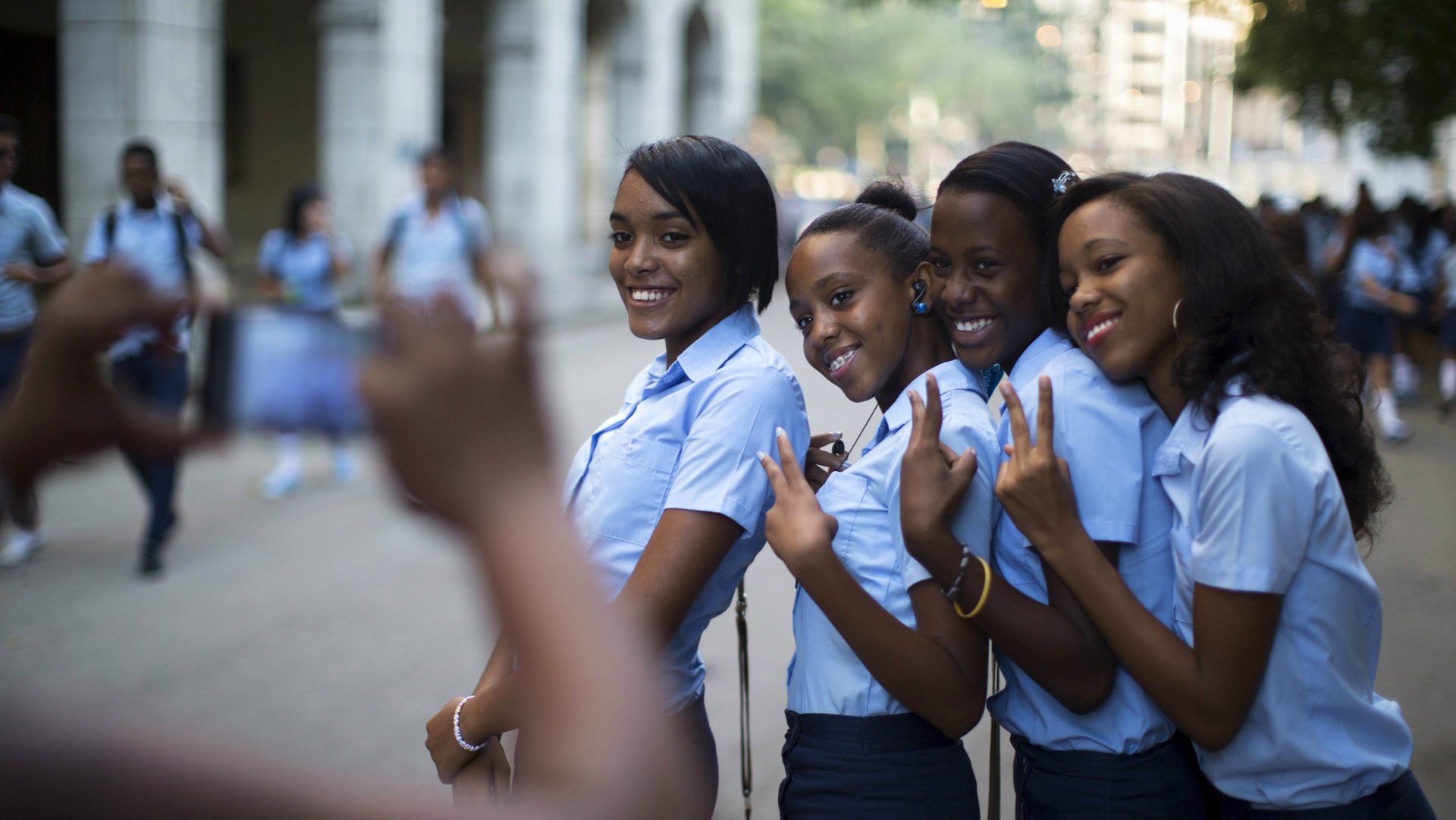New research shows one kind of teenage friendship is more likely to result in a happier, healthier adulthood
Parents often think teenagers are overly obsessed with their best friends. They should let them be.


Parents often think teenagers are overly obsessed with their best friends. They should let them be.
New research published in the journal Child Development shows that teens aged 15 and 16 who had a close friend, rather than a bigger peer group featuring less intense relationships, reported higher levels of self-worth and lower levels of social anxiety and depression at 25 compared with their peers who were more broadly popular as teens.
Prior research has shown that friendship is important in adolescence—it predicts everything from stronger psychological health and better stress responses to improved academic motivation and success during adolescence.
Rachel K. Narr, a PhD candidate in clinical psychology at the University of Virginia who led the study, wanted to dig deeper into teenage friendships: which kinds matter the most when it comes to positive outcomes later in life? And how long do those effects last?
“My hunch was that close friendships compared to broader friendship groups and popularity may not function the same way,” she says. “Being successful in one is not the same as being successful in the other.”
Narr’s study tracked 169 adolescents over 10 years, from age 15 to 25. The kids were racially, ethnically, and socioeconomically diverse. The authors interviewed the kids at 15, 16, and then again at 25. They were asked who their closest friends were, and detailed questions about their friendships in general. The interviewers also asked them about anxiety, social acceptance, self-worth, and symptoms of depression.
They triangulated the teens’ responses, making sure best friends concurred on being best friends, and those who said they were popular had reports from others of actually being popular. “High-quality friendships” were defined as “close friendships with a degree of attachment and support, and those that allow for intimate exchanges.”
The research mirrors other studies which show that there are two types of popularity: people who are likable—their peers trust them and want to be with them—and those who seek status, and often try to wield that popularity as power.
Mitch Prinstein, a professor at the University of North Carolina and author of Popular: The Power of Likability In A Status-Obsessed World, argues that people who seek to be likable tend to end up in healthier, in better relationships, with more fulfilling work, and even live longer. Status-seekers, on the other hand, often end up anxious, depressed, and with addiction problems. Prinstein was not involved in Narr’s research but said it offered “further evidence to suggest that some kinds of relationships matter more than others.”
Narr offered a few hypotheses why kids with close friends fared better down the road, even though the research did not show any short-term benefits (kids who had a best friend at 15 did not report to be any more or less depressed at 16).
Adolescent relationships are critically important because they are the first that teens form outside their families, and come at a time when identity is being formed (as they say, you can pick your friends but not your family). “It gives these kids the knowledge that they can build these extra-family relationships,” says Narr.
It’s about the skills a teen develops in forming friendships, rather than the friends themselves. Most kids won’t have the same best friend at 25 that they had at 15, but making close friends develops muscles that can become self-defining characteristics. These help to build self worth, and give kids confidence that they can build trusting relationships, which is something the researchers say bodes well for the next chapter of intimacy in life: romantic relationships.
The opposite is also true: The things that sometimes makes teens popular—like being the kid who loves to party—loses its appeal by 25. “Being the kid who is drinking or having sex at 25 is not special or unique,” says Narr.
The study has limitations, including the fact that it is impossible to know whether friendship causes less depression or less depressed teens are more prone to make friends. Also, the study took place prior to the onslaught of social media (the kids were 15 in May 2001 and they were tracked through November 2011). But other research underscores the importance of forming live friendships over SnapChat streaks.
“As technology makes it increasingly easy to build a social network of superficial friends, focusing time and attention on cultivating close connections with a few individuals should be a priority,” Joseph Allen, a psychology professor at the University of Virginia and co-author the study, said in a statement. Being well-liked by many doesn’t replace the experience of forming deep and supportive friendships, which appear to have long-lasting, life-affirming effects.